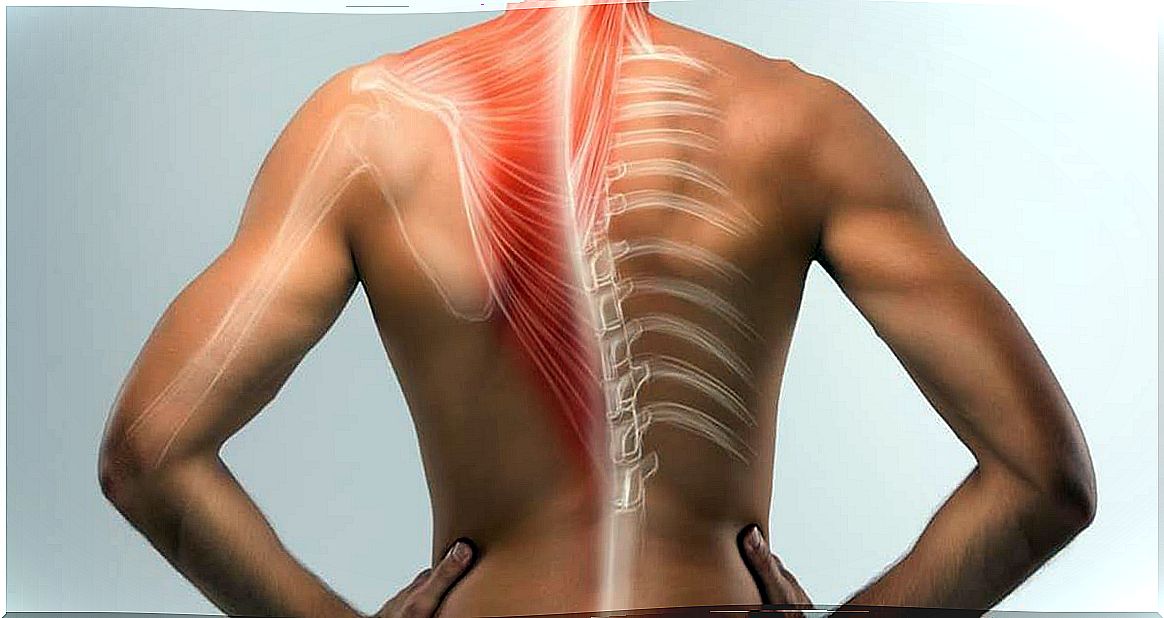Anxiety Back Pain: Why Does It Occur? What I Can Do?

Back pain from anxiety doesn’t always go away with acetaminophen or by sleeping on the best mattress. We are that society that allows stress and anxiety levels to touch the 9, when it is advisable to never exceed 5. It is too difficult for us to control worries and manage emotions, and all this has a harsh impact on the musculoskeletal system.
We are not wrong in pointing out that back pain is, by far, one of the most prevalent pathologies. It is true that it can have multiple triggers: poor posture, workload, arthritis, osteoporosis, rupture or disc problems … Now, we cannot ignore that realities such as emotional disorders (anxiety, depression…) are another trigger to consider.
A large part of the adult population (and even part of the child and youth population) has suffered at some point from this problem, related to pain in the spine due to a psychological factor. It never hurts to delve into this topic and learn about its characteristics and triggers.

Anxiety Back Pain: Why Me?
Because I? Why do I have back pain from the time I get up until I go to bed? Many people ask this question on a daily basis, especially this last year. Indeed, there are times when environmental and biological factors combine to cause a higher-than-expected physical reaction to anxiety.
Something that remains in evidence is that common low back pain has a great social and economic impact. It is very difficult to carry out our work when back pain prevents us from moving. It is also important to highlight the time (and even money) we invest in medical tests and treatments, drugs, therapies, physiotherapists …
Back pain and anxiety often go hand in hand, it goes without saying. Furthermore, studies such as those carried out at the University of Porto (Portugal) indicate something else in this regard. It is very common for patients with chronic low back pain to show depressive and anxiety disorders.
These psychological states make it difficult even for certain treatments to be effective. That is, the psychological factor has a great relevance in this musculoskeletal condition.
What are the causes of this relationship?
There are several factors that orchestrate the basis of anxiety back pain. The first thing to keep in mind is something very specific. This phenomenon arises when we drag a continuous state of anxiety over time. It is then that cortisol, epinephrine, norepinephrine or dopamine begin to generate various alterations.
- One of them includes the constriction of the blood vessels and the consequent reduction of blood flow to the muscles, tendons, ligaments and nerves of the back.
- What happens with this decrease in the supply of oxygen to these areas is that they stop receiving nutrients. With which biochemical residues begin to accumulate in the muscles and tendons. This can range from stiffness, cramps, lack of flexibility to tension and pain.
- On the other hand, there is another factor. In situations of anxiety and stress, the nervous structures experience a greater sensation of pain, hypersensitivity rises and it is common to experience greater general suffering in the entire area of the spine.
Myositis syndrome
John E. Sarno was a professor of clinical medical rehabilitation at New York University School of Medicine who enunciated the theory of myositis syndrome. According to him, back pain due to anxiety has its origin in the tension that we exert as a result of stress on the muscles of the entire spine.

What can I do to relieve back pain associated with anxiety or stress?
To treat anxiety back pain we need changes. It is not about doing a series of specific exercises and then forgetting them and moving on to something else when we no longer feel any discomfort. The back, like mental health, is taken care of on a daily basis and something like that requires daily efforts and wills.
Therefore, it is interesting that you reflect on the following aspects.
Keys to attend to your back and your emotions
Body and mind form a bond that feeds each other. We cannot worry about physical health neglecting, for example, the emotional aspect. Therefore, it is important that we first try to rationalize our emotions and take care of our internal dialogue.
- It is decisive that we offer ourselves rest times throughout the day. Those moments of connection, of physical and mental calm are important.
- Something as simple as going for a walk every day for half an hour is very healthy. The body, like the back, need movement, hence swimming, walking or running are highly recommended.
- Deep and diaphragmatic breathing exercises are beneficial for treating anxiety and physical pain.
- Practicing yoga, for example, can be very successful in these cases.
- You have to take care of your posture in front of the computer. Try to establish rest intervals in which to promote movement.
To conclude, when treating back pain due to anxiety, it is appropriate to use a multidisciplinary approach. Psychology, physiotherapy, sports and ergonomics applied to work are indisputable pillars that can improve our quality of life.









